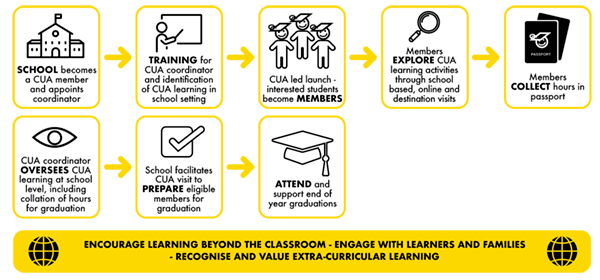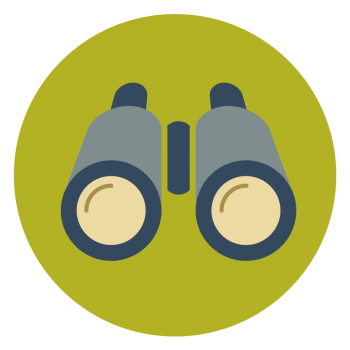Children’s University Australasia and Africa (IO) (Children’s University) offers opportunities and recognition to children for completing and participating in beyond school learning. Our hope is that this encourages a love of learning in their pursuit of a future career. Children and young people can only aspire to what they know exists and Children’s University provides them with a system to navigate potential future pathways through this learning.
How do we do this?
Children’s University facilitate superior educational experiences to students outside of school hours and recognises their achievements through a graduation ceremony with certificates. We do this by leveraging local educational activity providers such as museums, theatres, school clubs and sports groups. Engaging a wide range of experiences such as these is proven to develop a child’s self-efficacy, confidence and aspirations. They are encouraged to explore new ideas, concepts and experiences – not simply stick with what they know!
All learning must be linked to a higher education course. For example, a school gardening club links to agronomy, micro-biology, botany, and food science.
Target schools are disadvantaged by location, socio-economic status, and the cultural make-up of the student body. Children’s University aims to break cycles of disadvantage through circumstance. Multiple independent evaluations show Children’s University students have improved school attendance rates by virtue of activities that enhance their school experience. They also achieve better academic results because of a new-found self-confidence in their own potential. Outcomes show students enjoy learning more after participating in Children’s University because they extend their range of interests and see learning in a new light.
Each member aged 5 to 14 receives a Passport to Learning where hours of extra-curricular activities are logged. Hours are accumulated and once the hours needed to graduate are achieved, members are presented with Children’s University certificates at a formal graduation ceremony held at their partner university. Students aged 15 to 18 receive a Passport to Volunteering and are encouraged to participate in Children’s University by volunteering to run clubs and activities, assist with events, and become a role model to younger students.










